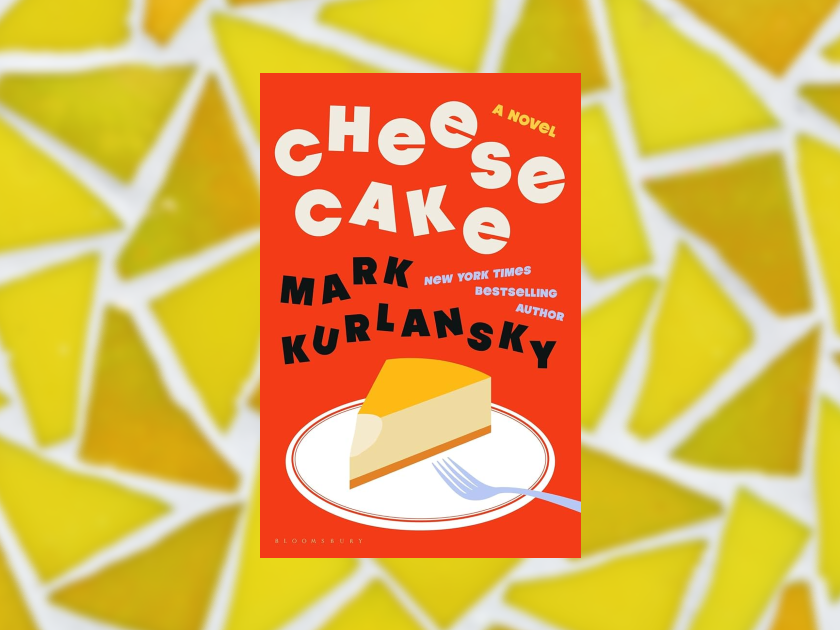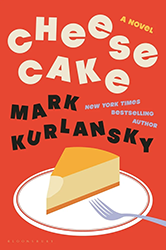
In writing my new novel, Cheesecake, I reflected on the enormous changes that have taken place in Jewish life in recent decades. The book is not solely focused on Jewish life. It is really about how the lust for real estate is destroying neighborhoods and lives. Jewish lives are only a part of this. Characters in the book mourn the disappearance of the landsleit, while others are frantically Googling to find out what the word means.
The characters in the novel do not use landsleit in the traditional sense, meaning fellow Jews. There are still Jews. What they mean is the disappearance of the old-time neighbors, some many of whom are Jewish and some of whom are not, including Haitians .
It is a way of life that is disappearing and the cause is largely the price of real estate. The old bakeries have all been driven out and so have most of their Yiddish speaking customers. Even if you didn’t speak Yiddish you could sit at the Éclair, eat a dessert, and listen to the singsong arguments in Yiddish of the older patrons. Founded in 1939 by a Viennese sugar broker, it filed bankruptcy in 1996 and was replaced by a Krispy Kreme Donut shop. Most of the other Upper West Side bakeries have met the same fate which is why I can no longer get my strudel on the corner.
Isaac Bashevis Singer was one of the regulars at the Éclair. He was the only Nobel Prize winner whose entire body of work was written in Yiddish. I happened to know Bashevis Singer because we lived in the same neighborhood both in New York and Miami. Today the block next to mine on the Upper West Side has been named after him but I wonder how many young people know his name, much less read his books about a world to which they feel little connection.
In Miami, in the 1980s I lived on Ocean Drive in what is now called South Beach. I liked the neighborhood with its long porches where Jewish immigrants, many of them Holocaust survivors, sat in aluminum chairs enjoying the sea view, while they chatted. The slick developers that were buying up the neighborhood at bargain prices wanted to drive them out. They spoke to them with an air of friendly condescension and didn’t seem to understand that these tough and extraordinary people had incredible stories. They have all been replaced with gaudy restaurants struggling to look trendy.
Characters in the book mourn the disappearance of the landsleit, while others are frantically Googling to find out what the word means.
Shifting communities and community institutions is at the heart of my novel, Cheesecake. I often reflect on how my experience of being a Jew is so completely different from that of my daughter, born in 2000, and living on the Upper West side where she was born. For me being a Jew meant being in a world of immigrants. It often strikes me that my daughter has never met an immigrant relative. She doesn’t know Yiddish-speaking people either even though it was the first language of my father and my mother-in law, neither of whom my daughter knew. I don’t think she even knows many Yiddish expressions other than the ones that have become part of New York vernacular.
Yes, she went to a synagogue and a Hebrew school around the corner and that gave her a strong sense of being Jewish. But it is a different sense than mine. On Saturdays everyone says Shabbat shalom. Growing up, I never heard this phrase. We always said Gut shabbes.
At ceremonies — wedding, bats mitzvah, etc —I am always asked for my Hebrew name and that of my father. We didn’t have them. We had Yiddish names instead.
And speaking of bar and bat mitzvahs, what has happened since Jewish neighborhoods have moved from middle class academics, social workers, lawyers with small practice lawyers, to large firm lawyers, and businesspeople with incomprehensible occupations with names like hedge fund? That is what has happened in my neighborhood because that is who can afford the rent.
The ceremonies are still the same though while they were supposed to initiate their entrance into Jewish life they more often mark the conclusion of their Jewish education, which is celebrated with a lavish event. You are almost obligated to invite your classmates whether they are Jewish or not. They compete for the best reception as in the one in my book, which serves a chocolate coated Roman cheesecake (which makes no sense).
Fine, I don’t live a religious life either. Many of the landsleit were leftists who didn’t believe in religion. But it is a different world. The culture has changed. I just miss chatting in the elevator with people with whom I have something in common. But there is a Yiddish proverb: No one knows whose tomorrow it will be. Though I have my suspicions.

Cheesecake by Mark Kurlansky
Mark Kurlansky is the New York Times bestselling author of Milk!, Havana, Paper, The Big Oyster, 1968, Salt, The Basque History of the World, Cod, and Salmon, among other titles. He has received the Dayton Literary Peace Prize, Bon Appétit’s Food Writer of the Year Award, the James Beard Award, and the Glenfiddich Award. He lives in New York City. www.markkurlansky.com